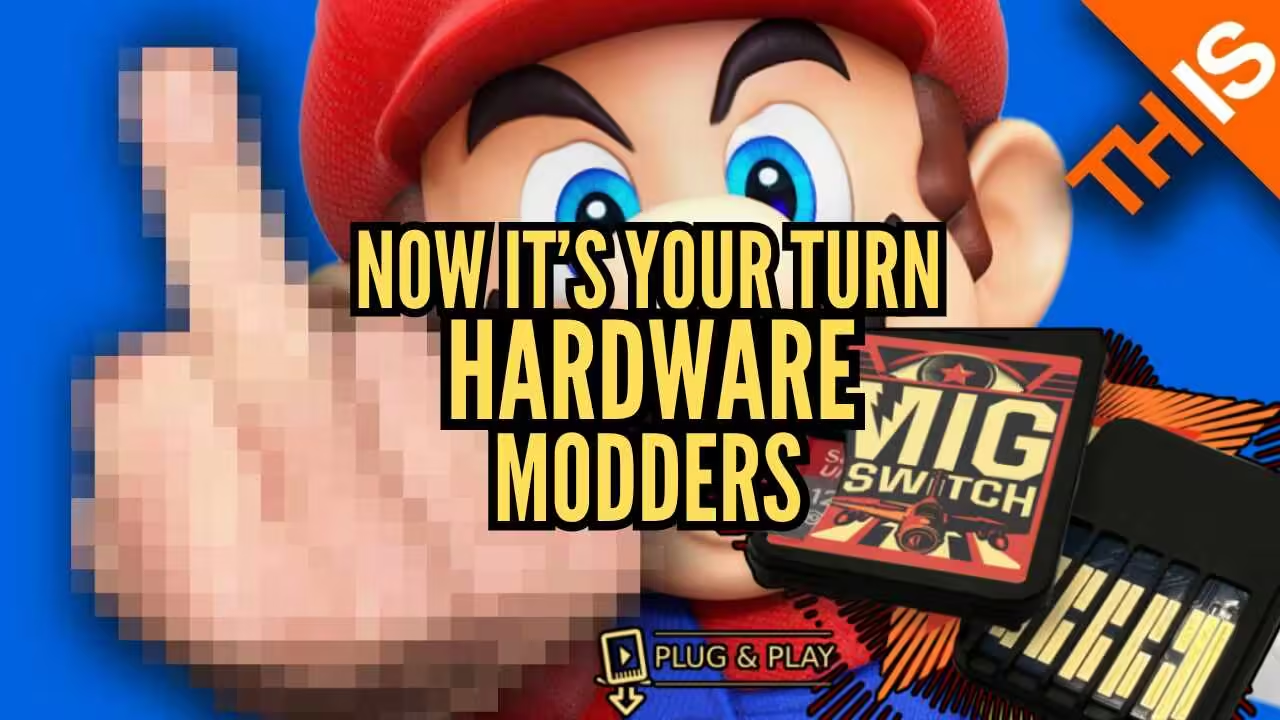The gaming world is no stranger to the ongoing conflict between large corporations and smaller entities, particularly when it comes to intellectual property rights. One of the latest examples comes in the form of a lawsuit between Nintendo (here we go again) and Ryan “Homebrew Homie” Daly, who is alleged to run Modded Hardware, a business that sells modified gaming hardware. This case has raised many eyebrows, especially given the fact that Daly has chosen to face off against Nintendo without legal representation.
This case added one more possible win streak for Nintendo since they still had an ongoing case against Youtuber RetroGameCorps not long ago.
How it All Started
In July, news broke that Nintendo had taken legal action against a group called Modded Hardware, which, as the name implies, specializes in selling modified gaming consoles. According to Nintendo, these modifications allow users to bypass the company’s strict security features, which in turn enables pirated games to be played on their consoles. Ryan Daly, who is reportedly behind Modded Hardware, was initially approached by Nintendo with a request to stop selling these products.
Rather than complying, Daly allegedly continued his business, which led to Nintendo filing a lawsuit against him. Nintendo has a long-standing reputation for protecting its intellectual property, particularly against activities that facilitate piracy, so this move was not entirely unexpected.
Daly’s Response: Denials Across the Board
Despite the mounting legal pressure, Daly has maintained a strong stance, denying all allegations brought against him by Nintendo. According to a report by Torrent Freak, Daly responded to Nintendo’s claims with repeated denials. His strategy seems to be centered around the argument that he does not have enough information to admit or deny most of the allegations, which led him to formally deny them in his legal response.
In addition to his denials, Daly has listed 17 affirmative defenses, which serve as potential arguments to avoid liability. Some of the most noteworthy defenses include:
- Fair use: Daly may argue that the modifications made to the hardware fall under the category of fair use, meaning they are legal and do not infringe on Nintendo’s copyrights.
- Invalid copyrights: Daly might claim that the copyrights Nintendo is asserting are either invalid or do not apply to the modifications in question.
- Fraudulent inducement: Daly could argue that Nintendo’s claims are based on misleading or fraudulent information.
- Unjust enrichment: This defense could be used to argue that Nintendo is benefiting unfairly from its legal claims against him.
The outcome of these defenses will be critical in determining the direction the lawsuit takes.
Legal Implications
This case is a pivotal moment for the gaming industry because it brings to light several important legal issues surrounding modded hardware and intellectual property protection. Nintendo has always taken a hardline stance against modders and pirates, but this case may set a legal precedent for how future cases are handled.
- Intellectual property enforcement: If Nintendo is successful, it could further solidify the company’s ability to enforce its intellectual property rights, especially in cases involving third-party modifications to its hardware.
- Consumer rights: On the other hand, Daly’s defenses, particularly those involving fair use, could have broader implications for consumer rights in terms of what modifications they can legally make to hardware they own.
This legal battle is also significant because it demonstrates the risk that small businesses or individuals take when they go up against a large corporation like Nintendo, especially without proper legal representation.
Modded Hardware’s Website Goes Private
In the midst of this legal battle, the Modded Hardware website has been made private, requiring a password for access. While the exact reason for this move is unclear, it could be a strategic attempt to shield the business from further legal scrutiny or to minimize potential evidence that could be used against Daly in court.
This move raises further questions about the future of Modded Hardware and how this case may impact other businesses engaged in similar activities. If Nintendo is successful in this lawsuit, it could lead to a crackdown on other modding businesses, forcing them to reconsider their operations.

